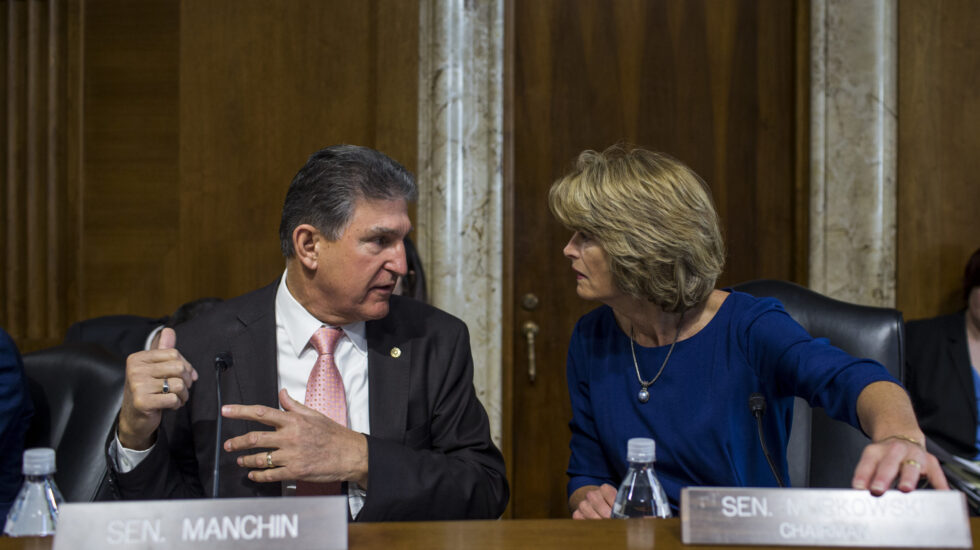A bipartisan group of 20 senators have reached a framework on an infrastructure bill that includes $579 billion dollars in new spending focused on rebuilding roads and bridges, improving public transit systems, investing in broadband, and upgrading America’s airports.
Ten Republican senators have signed the plan – and the list seems poised to grow – giving hope that it might survive a filibuster. But liberals are balking at the proposal, which jettisoned progressive priorities like fighting climate change and income inequality.
President Joe Biden initially proposed a much larger infrastructure package in April. Last month, he slimmed down his ask, offering a deal that would include $1.7 trillion in new spending.
On Wednesday, Biden told reporters that he hadn’t seen the new bipartisan framework, but he added “I know that my chief of staff thinks there’s some room.”
Thus far, Republicans have resisted raising corporate taxes, which is a potential revenue source Democrats want to use in order to cover the infrastructure spending. The new bipartisan framework suggests redirecting COVID relief funds, issuing new bonds, and pursuing public-private partnerships.
(Important note on tweet above, courtesy of Politico: “The White House was assured Wednesday that there would be no gas tax increase or inflation indexing and no electric vehicle user fee in the bipartisan framework agreement.”)
USA Today explains that Democrats haven’t abandoned climate change resilience or “social infrastructure” priorities like elder care and affordable housing. Instead, they are pursuing a “two-track” approach:
On one hand, Democrats said they would negotiate with Republicans on a bill that focuses on traditional transportation. If a deal can’t be reached, Democrats would fold those programs into a larger climate bill using budget reconciliation, a parliamentary strategy that bypasses the filibuster process and allows a simple majority to pass legislation.
More from CNBC:
Senate Majority Leader Chuck Schumer said Democrats would start the process of drafting a budget resolution Wednesday even as the bipartisan talks proceed. He said a proposal folding in social and climate programs included in President Joe Biden’s American Jobs Plan and American Families Plan “will be considered by the Senate even if it does not have bipartisan support.”
“There are many items to discuss, but one subject is not up for debate: I will instruct members to ensure that any budget resolution puts the United States on track to reduce carbon pollution at a scale commensurate with the climate crisis,” Schumer, of New York, said earlier Wednesday.
Hope for a bipartisan infrastructure bill faded earlier this month, when Biden failed to reach a deal with Sen. Shelley Moore Capito of West Virginia, the lead GOP negotiator. When the Capito-Biden talks ended, the bipartisan group began working in overdrive.
According to Politico, “Biden’s senior aides still consider a deal doable, though very hard, and they know it will be declared dead and then resurrected many more times before this is over.”
The Republicans who signed Wednesday’s statement are Sens. Richard Burr, of North Carolina; Bill Cassidy, of Louisiana; Susan Collins, of Maine; Lindsey Graham, of South Carolina; Lisa Murkowski, of Alaska; Rob Portman, of Ohio; Mitt Romney, of Utah; Mike Rounds, of South Dakota; Thom Tillis, of North Carolina, Todd Young, of Indiana, and Jerry Moran, of Kansas.
The Democrats who joined them are Sens. Chris Coons, of Delaware; Maggie Hassan, of New Hampshire; John Hickenlooper, of Colorado; Mark Kelly, of Arizona; Joe Manchin, of West Virginia; Jeanne Shaheen, of New Hampshire; Kyrsten Sinema, of Arizona, and Mark Warner, of Virginia. Sen. Angus King, a Maine independent who caucuses with Democrats, also signed the statement.
